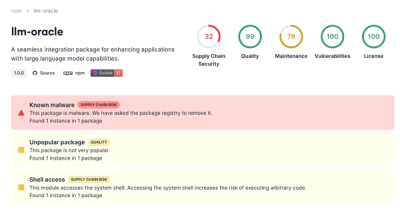
This is a plugin that only has a peer dependency to piral-core. What piral-fetch brings to the table is a single Pilet API extension called fetch that is used by piral.
By default, these API extensions are not integrated in piral, so you'd need to add them to your Piral instance.
Why and When
Making HTTP requests is one of the most important aspects of a modern SPA. Even though fetch works in all browsers important information such as the user's token may be missing when making the request. This library integrates fetch directly with the token middleware (if any) to properly communicate with the backend.
Alternatives: Communicate tokens or other basic information via events or the shared data store or require use of another pilet API to retrieve it (e.g., getUser from piral-auth).
Documentation
The following functions are brought to the Pilet API.
fetch()
This is a simpler version of the standard fetch from the browser.
Usage
::: summary: For pilet authors
You can use the fetch function from the Pilet API to communicate with your backend. This instance has advantages over using the plain fetch function.
For instance, it is already wired up with the authentication system and communicating to the right backend. As such relative URLs can be used when doing requests.
Example use:
import { PiletApi } from '<name-of-piral-instance>';
export function setup(piral: PiletApi) {
const promise = piral.fetch('/foo').then(res => res.body);
}
Note that the response is slightly different to the fetch function from the browser.
:::
::: summary: For Piral instance developers
The provided library only brings API extensions for pilets to a Piral instance.
For the setup of the library itself you'll need to import createFetchApi from the piral-fetch package.
import { createFetchApi } from 'piral-fetch';
The integration looks like:
const instance = createInstance({
plugins: [createFetchApi()],
});
Via the options the default settings and the base URL can be defined.
For example:
const instance = createInstance({
plugins: [createFetchApi({
base: 'https://example.com/api/v1',
default: {
headers: {
authorization: 'Bearer ...',
},
},
})],
});
Note: piral-fetch plays nicely together with authentication providers such as piral-adal. As such authentication tokens are automatically inserted on requests to the base URL.
Middlewares
piral-fetch allows you to configure middleware functions which are executed on each fetch call. Middleware functions receive the same parameters as fetch, plus a next function which calls either the next middleware or the actual fetch function. The following code shows an exemplary middleware which logs when requests start and finish:
const logRequests: FetchMiddleware = async (
path: string,
options: FetchOptions,
next: PiletFetchApiFetch,
): Promise<FetchResponse<any>> => {
try {
console.log(`Making request to ${path}...`);
const response = await next(path, options);
console.log(`Request to ${path} returned status code ${response.code}.`);
return response;
} catch (e) {
console.error(`Request to ${path} threw an error: `, e);
throw e;
}
};
Middlewares must be configured in the Piral instance:
const instance = createInstance({
plugins: [createFetchApi({
middlewares: [
firstMiddleware,
secondMiddleware,
thirdMiddleware,
logRequests,
],
})],
});
Middlewares are invoked in a top-down order. In the above example, this means that firstMiddleware is invoked first, then secondMiddleware, then thirdMiddleware, then logRequests and finally the actual fetch function.
:::
License
Piral is released using the MIT license. For more information see the license file.








